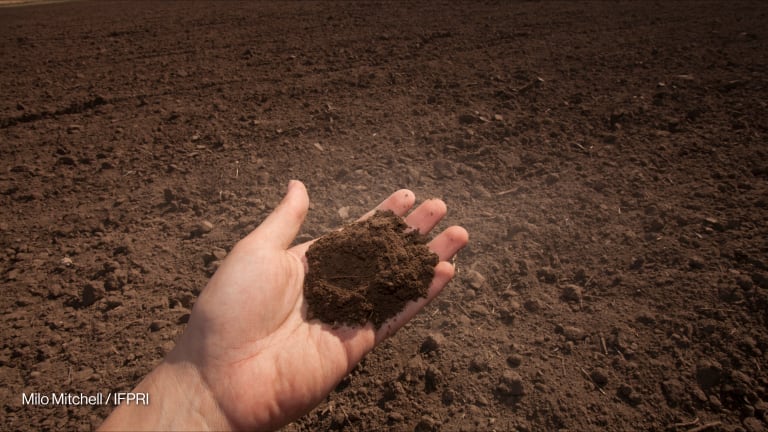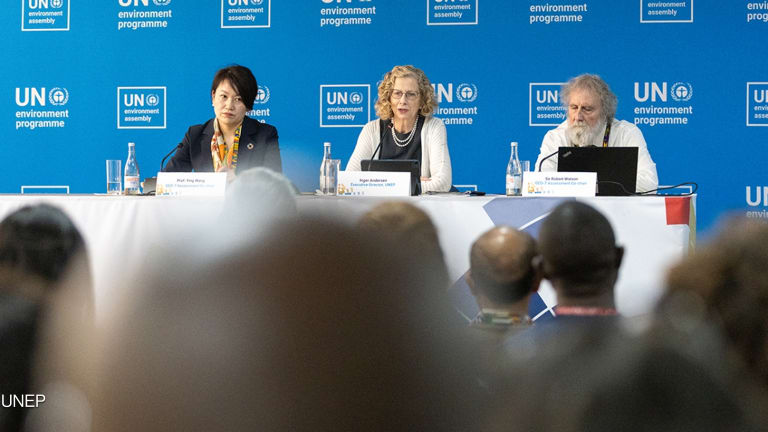In most disaster-prone region, climate change to have devastating effects, ADB report warns

As climate change deniers are influencing global policies for some developed countries, including the United States and Australia, developing nations in Asia and the Pacific are already living with its effects. The vocal views of deniers are a frustration to the region, some parts of which are already implementing relocation plans for communities living on low-lying islands.
For these nations, ensuring all countries implement pledges from the Paris Agreement on climate change is the difference between adaptation and death. And a new report from the Asian Development Bank and Potsdam Institute for Climate Impact Research highlights the urgency for action, showing the impacts not just to Asia and the Pacific but on surrounding nations that will need to support climate migrants and swelling populations that will challenge national resources and economies.
“This report certainly highlights the importance of implementing the pledges laid out in the Paris Agreement, and this includes public and private investment focused on the rapid decarbonization of the Asian economy,” Bambang Susantono, ADB vice president for knowledge management and sustainable development, said at the launch in Manila, on July 14.
Here are some of the key takeaways the development sector needs to know from the report, A Region at Risk: The Human Dimensions of Climate Change in Asia and the Pacific.
Asia and the Pacific faces the greatest challenges from climate change — but the human element has been ignored
Despite economic growth in the past decades, the Asia-Pacific region is home to two thirds of the world’s poor. It has also been declared the most disaster-prone region in the world. The combination alone creates extreme vulnerability, but combined with increasing environmental pressure from climate change, the impacts will be deadly. Changing temperatures and extreme heats are set to dramatically impact liveability of tropical regions. By 2030, 26,000 children are predicted to die annually because of undernutrition due to climate change.
See more related topics:
► Melanesian nations question global responses to climate change
► Climate change is undermining sustainable development in Myanmar. Here is what can be done about it.
► How to reframe climate programs in an era of climate denial: Lessons from Australia
► Former Maldives president on stopping the rising seas that threaten his home
And yet, communities such as the Pacific that are already feeling the effects of climate change have felt ignored by bigger economies on their pleas for action.
Earlier this year Collin Beck, Solomon Islands high commissioner to Australia said the global response and disinterest in the Pacific concern felt like “genocide.”
In 2015, a presentation hosted by Caritas Australia at Parliament House in Canberra saw no Australian politicians attend to hear the emotional pleas of Maria Tiimon, an I-Kiribati serving as a Pacific outreach officer at the Pacific Calling Partnership, for the country to do more on climate.
“The human element of climate change is one that may not have been sufficiently emphasized and is the focus of this report,” Susantono said, highlighting the need for global economies to better value humanity. “Climate change will erode the development opportunities and the quality of life of hundreds of millions of people in the Asia and the Pacific regions.”
Climate change is unavoidable — but the degree of impact is
For the development sector, it is not news that climate change is unavoidable. But for Asia and the Pacific, it is a question now of whether a 1.5 to 2 degree Celsius target under the Paris Agreement is achievable.
A 2 degree Celsius increase in global temperatures is predicted to result in the death of 90 percent of the world’s coral reefs.
—The report says that limiting global warming to this target would still see some of the land area, ecosystems, and socioeconomic sectors be significantly affected in the region. Greenland is likely to melt, resulting in a seven meter sea level rise, with significant impacts on the Pacific region. And a 2 degree Celsius increase in global temperatures is predicted to result in the death of 90 percent of the world’s coral reefs.
“The northern part of the Great Barrier Reef is already dying,” Professor Hans Joachim Schellnhuber, director of the Potsdam Institute, said at the launch of the report.
Susantono displayed skepticism that these targets could be met.
The alternative under a business-as-usual scenario that is supported by the U.S. is an increase in the global mean temperature of more than 4 degrees Celsius by the end of this century. For Asia and the Pacific, this means adaptation is nearly impossible.
The impacts predicted are the deterioration of the Asian “water towers,” prolonged heat waves, coastal sea-level rise impacting aquaculture and rainfall pattern changes that disrupts ecosystems.
Food security, health and livelihoods will all deteriorate, leading to mass migration and potential conflicts due to the scarcity of land and resources, as well as clashing cultures.
Inaction of neighbors today means high costs for tomorrow
Under a business-as-usual scenario that is supported by the U.S. an increase in the global mean temperature of more than 4 degrees Celsius by the end of this century.
—Rural to urban migration is the most likely scenario caused by the effects of climate change in the region. As farming becomes unsustainable and economic opportunities dry up, moving to urbanized areas is the only option for livelihoods. The effects of climate change in the Mekong Delta, for example, will put increased pressure on Phnom Penh and Ho Chi Minh City.
This not only impacts food security but it builds pressure on housing and supporting these growing populations that may be living in poor conditions.
But predicted migration routes will see a buildup of pressure on Australia, China, India, New Zealand, Qatar, Saudi Arabia, United Arab Emirates and the United States. And these countries are not financially, legally or administratively prepared for the challenge of housing climate refugees as well as ensuring the preservation and survival of unique cultures.
Globally, climate migrants will total more than 1 billion people.
There is still a lack of information to support Asia and the Pacific
Data, information and knowledge is extremely powerful to support communities to adapt and prepare for the impact of climate change. “It’s on the scientific evidence we have to base our strategic investment,” Schellnhuber said.
There remain large gaps of knowledge that are preventing effective support and intervention in Asia and the Pacific.
Meteorological, hydrological and elevation data all need to be improved urgently for climate change modelling, the report notes.
There also needs to be an increase in quantitative studies and empirical data to understand what the predicted changes will mean for populations, including their movements and decision making.
Globally, climate migrants will total more than 1 billion people.
—Economic impacts are also a big question mark. Lack of research is currently limiting the ability to understand the potential impact on various areas of the economy which the region relies on.
And for people living in regional and poor communities, lack of knowledge and resource scarcity impairs their capacity for adaption.
The report recommends urgent action to address gaps in research and knowledge to better support the region with the future they will face.
The ADB response
According to the report, the coming decade will be crucial for implementing adequate mitigation measures which can deliver on the Paris Agreement. Investing in a rapid decarbonization of the Asian economy also need to be a high priority for lives and livelihoods in the region.
Adaptation measures need to protect the most vulnerable populations of the region. Renewable energy and technological innovation in urban infrastructure and transport need will spearhead this transformation, but mitigation and adaptation needs to also be mainstreamed throughout all sectors and at all stages of planning and development, directing regional economies toward a low-carbon and climate-resilient pathway.
Schellnhuber said it was the next three years that would be important.
“We need to stabilize global emissions,” he said. “Before you go down you have to peak — and this has to happen almost immediately.”
A look into ADB's future climate change work
The Asian Development Bank is currently finalizing its climate change operational framework for the period 2017-2030. Devex spoke to Preety Bhandari, the bank's climate change adviser, for a preview of what is in store.
To meet climate finance challenges by 2020, the ADB will provide $2 billion in adaptation financing. And they will also work with their developing member countries to embed measures addressing extreme weather events in the design and implementation of its investment projects, programs, capacity building-related assistance, and knowledge products.
A newly adopted climate change operational framework will guide the ADB’s direction on climate until 2030.
“Climate change is one of the biggest challenges in the human civilization in the 21st century,” Susantono said. “But there are options, there is technology available, there are solutions that we can take to overcome the problems and the challenges. And with that, I would like to invite everyone to work together.”
Read more international development news online, and subscribe to The Development Newswire to receive the latest from the world’s leading donors and decision-makers — emailed to you free every business day.
Search for articles
Most Read
- 1
- 2
- 3
- 4
- 5








